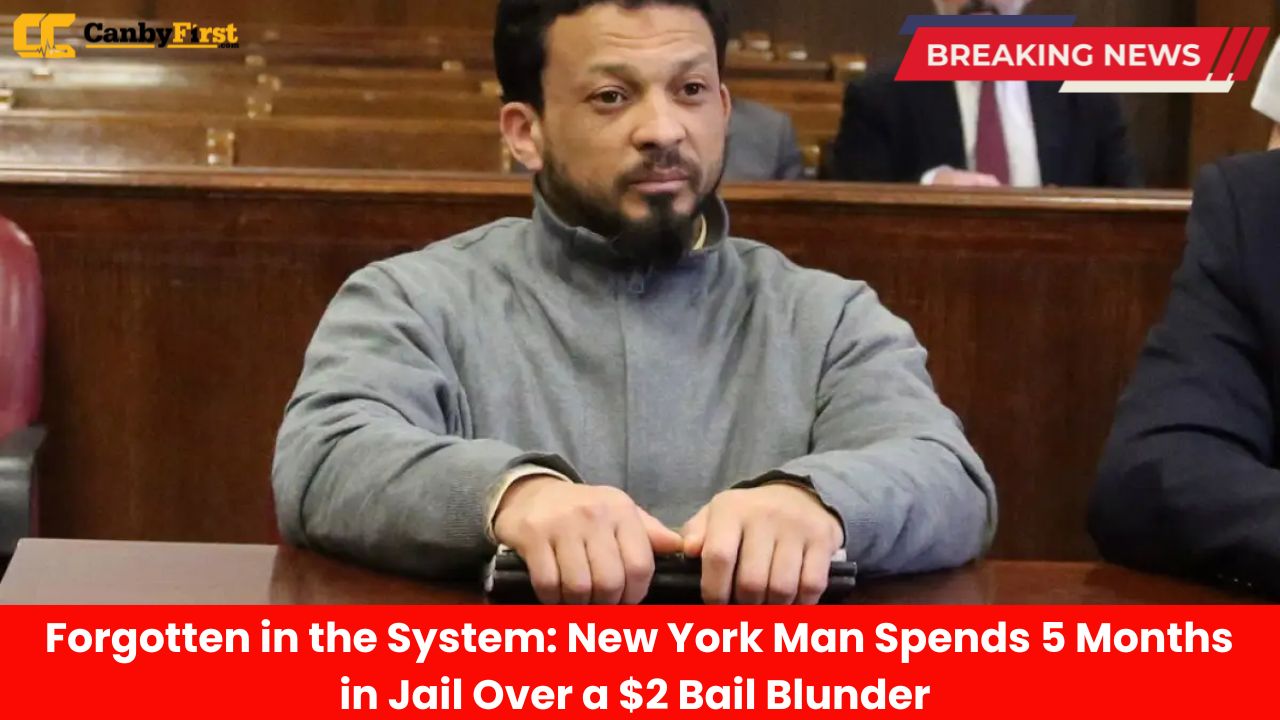New York, US: A shocking administrative lapse has come to light after a man from New York City spent nearly five months in jail simply because no one informed him that his bail had been set at just $2. The case highlights deep concerns about communication failures and bureaucratic inefficiencies within the criminal justice system.
A $2 Bail That Changed a Life
The man, identified as 31-year-old Marcus Hill, was arrested earlier this year on a misdemeanor charge related to a minor altercation. According to public defenders, Hill was initially unable to pay bail, assuming it was set far higher than he could afford. However, court records later revealed that his bail had been fixed at only $2 — an amount that could have secured his release within hours of arrest.
Months Behind Bars for a System Error
With limited access to information and no immediate family contact, Hill remained in custody in Rikers Island Jail for 150 days. During that time, he repeatedly asked about his case status but says he was only told to “wait for the next hearing.” It was during a routine case review by a new public defender that the error was finally discovered. Hill was released within 24 hours of the discovery.
Also Read
“It’s heartbreaking and outrageous,” said one of his attorneys. “This is what happens when individuals are treated as files instead of human beings. A two-dollar mistake cost him five months of freedom.”
Human Impact of a Minor Oversight
Hill’s story sheds light on the strain caused by poor communication among court clerks, jail staff, and defense representatives. Once released, he described feeling both relieved and disillusioned. “I thought it was a typo when they said my bail was two dollars,” Hill said. “I laughed, then I got angry. All that time, and no one said a word.”
He added that the experience deeply affected him emotionally and financially. While in custody, Hill lost his part-time job, his apartment, and missed critical family events, including his niece’s graduation.
Broader Questions About Bail and Justice
Legal analysts say the case raises serious questions about the bail system itself, especially for low-income detainees. Many defendants remain jailed for weeks or months over small or easily avoidable bail amounts because of a lack of oversight or communication failures.
Advocates for criminal justice reform argue that this case illustrates the broader issue of inequity in the system. “If a man can sit behind bars over a $2 bail, it’s clear that the problem isn’t just about money — it’s about neglect,” said a New York-based civil rights advocate. “The process needs transparency, accountability, and better checks.”
Officials Promise Review
In response to media attention, New York City’s Department of Correction has announced an internal investigation into the incident. Officials said they are reviewing processes involving bail notifications and detainee communication. The city’s public advocate’s office has also called for reforms ensuring that all inmates receive prompt updates on their case status.
A spokesperson acknowledged that while the bail system has undergone changes in recent years, including measures to reduce pretrial detention for minor offenses, “mistakes like this should never happen.”
Looking Ahead
Hill is now considering legal action against the city and county agencies responsible for his prolonged detention. His attorneys are reportedly preparing documents to claim compensation for wrongful imprisonment and emotional distress.
Meanwhile, the case has reignited the ongoing debate about bail fairness across the United States. With many prosecutors and policymakers calling for the abolition of cash bail for low-level offenses, Hill’s experience may become another catalyst for change.
As he tries to rebuild his life, Hill says his confidence in justice remains shaken. “You think the system will fix a mistake fast,” he said quietly. “But when you’re inside, you realize no one’s looking until it’s too late.”
Conclusion
The incident of a man languishing in jail for five months over a $2 bail reveals the devastating consequences of bureaucratic neglect. It serves as a grim reminder that even the smallest oversight can strip someone of their freedom and dignity. Reforming communication and oversight in the justice system is not just a procedural necessity it’s a moral one.












